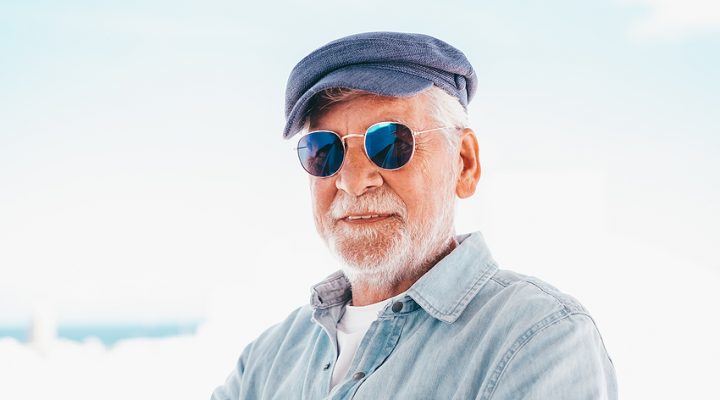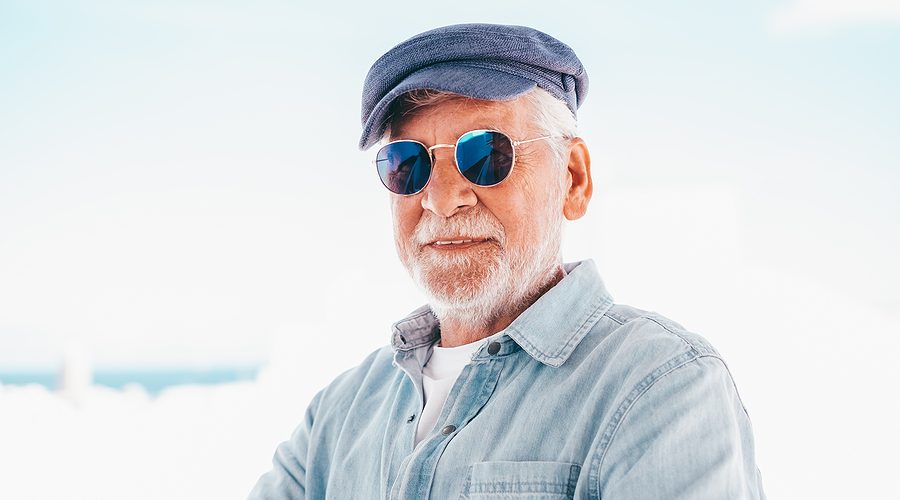It has been several years now, but I remember it vividly. My mother, who in her declining years spent much time in the hospital, was back in a private room in Rush’s Hospital in my hometown, Meridian, Miss. She was hospitalized often to remove fluid from her lungs. That probably was why she was there in this memory.
Janice and I made a quick trip back home from Houston because we never knew whether a particular hospital visit might be Mother’s last. As usual, we spent lots of time hanging around Mother’s room and walking the hospital halls. As a minister, I often visited hospitals in Houston, but this was different. I was not the clergyperson, two steps removed from the patient. I was the son of the elderly lady in the room and her husband, my Pop.
Since she had been a Pink Lady volunteer in this very hospital, many of the nursing staff and doctors knew Mother. Because Pop was a “people person” who loved to visit with others, and due to her many hospital stays, both of my folks were known and loved in that little health center village, which was both a workplace for some and a rescue center for others.
It was late one night. For once, we had talked Pop into returning home to get some needed rest. I was staying with Mother at the hospital when one of the nurses came in to check on her. Mother was snoozing, but I was awake.
I superficially accepted her kind words while doing a slow burn inside.
This younger nurse on the night shift had some time to visit, so we were talking when the topic turned to Pop. “I just love that little man!” she said, intended as a compliment to my father. I knew she was trying to commend Pop, and I superficially accepted her kind words while doing a slow burn inside.
“That little man” was my father, the model for everything that was manly, strong and courageous in my life. How dare this person refer to my father in such a way! He was far more than just “that little man!”
As the nurse left the room and I sat in the dark stillness while Mother slept, it dawned on me: So many others had not known my Pop for years, like I had. And his influence on them had not been as all-encompassing as it had been on me.
So many only knew him as “that little man” with the funny cap, which Pop liked to call his “Sunday cap,” since as a boy, he and his brothers only wore those flat caps to church.
So many in that hospital had only seen Pop as the man who was so attentive to my mother, frightened when, once again, she had been brought to the hospital in an ambulance, struggling to breathe.
So many who knew and loved my parents only knew them as senior adults in their declining years and often in frightening health situations, seeking direction, rescue and last-ditch efforts to change Mother’s life-threatening illness.
So, I “forgave” the night nurse for what I initially took to be her limited characterization of my otherwise virile and strong father. And I was forced to honestly admit that, although he once was robust, stout and resilient, the years had taken their toll on him. Now, in more than just the limited perception of that hospital nurse, he was, in fact, “that little man.” It was a good lesson for me, that night in a darkened, sterile hospital room.
Many years later, I was serving as an interim pastor of a Baptist church and I met a man near to my father’s age when the nurse gushed over him. As I talked with that long-term church leader who for years taught the young boys’ Sunday School class, he told me why he quit teaching that class. “These young boys see me as an old fogey — an old man who could not possibly understand their young lives,” he said. “That’s when I decided that a younger man should teach that class.”
Once we have logged several decades on our body’s odometer, we often are perceived by the younger ones as “that little man” or woman.
It is a reality, isn’t it? No matter how young inside we feel, once we have logged several decades on our body’s odometer, we often are perceived by the younger ones as “that little man” or woman.
And there is some truth to that. Aged people and younger people are not identical. Each of us has experienced life differently, and often we have experienced a different life. With the rapid advance of social change, with its many innovations and entirely new social constructs, sometimes it is difficult for all of us to reach across the demographic divides and to see each other as similar or of equal value.
The challenge for older people is to welcome the changes, acknowledge their realities, reap the harvest of wisdom that surely, or at least potentially, comes from aging, try to stay current, and reach across the geriatric barrier to relate to those whose beginning perception of us is that we are “that little man” or woman. And what my Pop taught me in his later years is that it is incumbent upon the senior citizens to take the first step in reaching out to the younger ones.
I’m remembering research, from years ago, when sociologists surveyed employees at McDonald’s. The test group was divided — as is often the case with fast-food workers — between one group of young employees, having their first experience with work, and another group of retired people, forced, out of economic necessity, to return to work and to take minimum wage to pay the bills. When the researchers asked the younger people what they thought of their older work colleagues, the kids said, “They wear funny clothes, they talk funny, and they smell funny!” When the retiree workers were asked about their younger work colleagues, they said essentially the same thing — “They wear funny clothes, they talk funny, and they smell funny!”
Perception is powerful. As I have now entered that demographic stage where my father was in that scenario at the hospital with my mother, I want to reach across the divide and relate well to younger people, even if their first impression of me is that I am “that little man!”

Bob Newell
Bob Newell has served as a university professor and administrator, a local church pastor and a cross-cultural missionary. He and his wife, Janice, now live in Georgetown, Texas, and he serves churches as transition coach and intentional interim pastor. They were the founders and remain advocates of PORTA, the Albania House in Athens, Greece.


